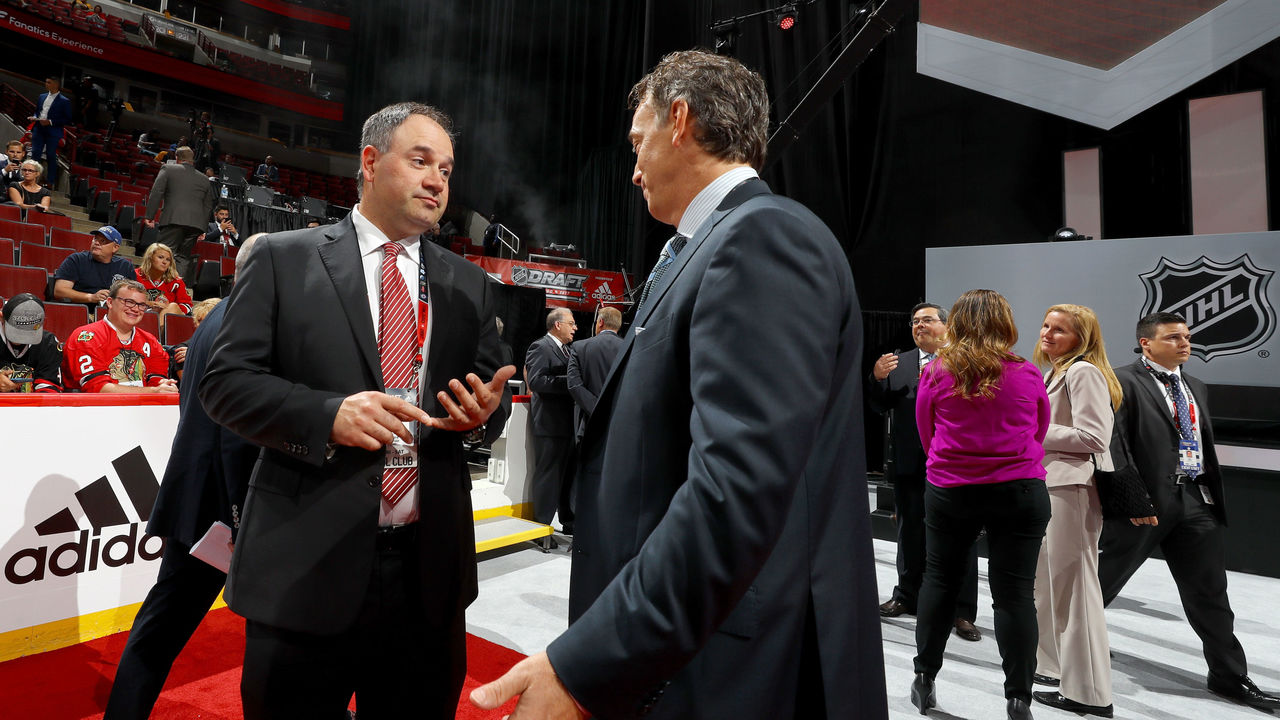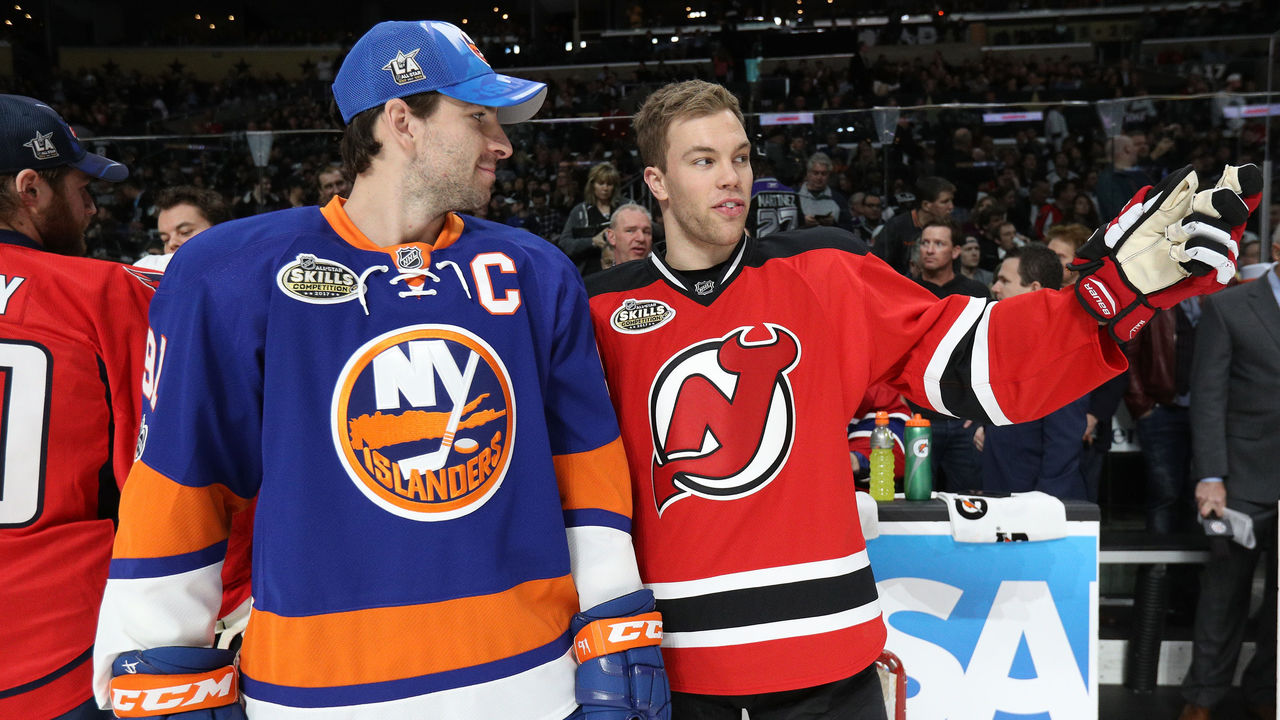How the NHL could make its offseason more exciting like the NBA's
To put it bluntly, the NHL offseason is like watching paint dry compared to the NBA. A typical NBA offseason is filled with ample drama, intrigue, unpredictability, and trades involving multiple star players. The NHL rarely has any of those.
For instance, James Harden reportedly just turned down a $50 million per year offer from the Houston Rockets because he wants his team to trade him to the Brooklyn Nets. The NHL equivalent would hypothetically be someone like Jack Eichel demanding a trade to a loaded squad like the Boston Bruins or Tampa Bay Lightning. That would be crazy.
A lot more goes into it, of course. The NBA is a star-driven league - two or three elite players can team up and almost immediately be legitimate contenders. Hockey is not the same. Despite Connor McDavid and Leon Draisaitl's performances last season, hockey superstars don't have the same team-carrying impact they do in basketball. Hockey is much more of a full team effort.
However, there are still a few ways the NHL could go about spicing up its offseason. We know the chances of these proposed changes coming to fruition is next to none - especially since the league just signed a six-year CBA extension in July - but this exercise is strictly for fun.
Even if these changes were made, the NHL offseason matching the NBA offseason's insanity would still be far from a guarantee - but it would be a step in the right direction.
Below, we highlight five changes that would make the NHL offseason more exciting.
Revamped salary cap

Soft cap
The NHL is the only one of North America's four major professional sports leagues to operate under a hard salary cap. This is designed to create parity - which the league has done successfully - but it makes trading incredibly difficult. However, using a soft salary cap like the NBA would help create more blockbuster deals.
A soft salary cap allows teams to go over the upper limit, but those who do so are forced to pay a luxury tax. If an NBA team goes up to $5 million over the salary cap, for example, they have to pay $1.50 for every dollar they go over the cap. If a team is $10-$15 million over the cap, they pay $2.50 for every dollar they go over. The more a squad goes over the cap, the more the luxury tax increases.
Repeat offenders are penalized even more harshly to incentivize big spenders to not go over the cap every year.
The money clubs pay in luxury tax are then shared with the teams that stay under the cap, allowing wealthy franchises to flex their financial muscles but also helping the small market organizations get richer.
Rolling cap
A salary cap rollover, which is used in the NFL, allows teams to bring their unused cap from the previous season to the current season. For example, a franchise like the Ottawa Senators, who are currently $12.5 million under the salary cap, would be allowed to go $12.5 million over the salary cap in the following campaign.
This allows small-market clubs that can't afford the luxury tax to spend with the wealthier franchises for a select number of years if they properly save their cap space.
Contract changes

5-year maximum
Not long ago, NHLers were free to sign contracts of extraordinary lengths. Ilya Kovalchuk inked an absurd 15-year contract with the New Jersey Devils in 2010, while Alex Ovechkin is still playing out the 13-year deal he signed in 2008. The NHL only introduced its contract length limits in 2013: eight years for players re-signing with their current teams or seven years for free agents.
Top players are often tied down long-term, but lowering the maximum contract length could allow for more shifting around the league - especially during the prime of their careers. The NBA's carousel of player movement is constantly in motion and typically includes some of the league's biggest names.
The NHL rarely sees its superstars move on from the squads that drafted them, at least early in their careers. To put this into perspective, only four of the NHL's No. 1 picks between 2004 and 2017 have played for a different team than the one that selected them, while 11 of the NBA's top picks have switched clubs at least once during the same time span.
Player opt-outs
The ability to eventually opt in or out of contracts is another thing many other pro sports leagues implement. Opting out opens up a plethora of options for both the athlete and the organization without removing the financial securities players often seek. Players could choose to opt out of a deal a year or two before its expiration and seek free agency or even to simply restructure a new contract and help the team out financially.
NHL squads often become financially constrained by the long-term deals that didn't pan out or have little wiggle room after breaking the bank to secure some franchise cornerstones. Opt-out options could be given out to players in the same way as no-movement clauses, building the terms into contracts from the beginning, which would extend players more freedom to move around the league if desired and teams more flexibility when working around the salary cap.
Lower UFA age
Young hockey stars are tied to their first team for the majority of their early careers due to rules surrounding restricted free agency. Once players complete their entry-level contracts, they don't hit unrestricted free agency until they've either accrued seven seasons in the league or are older than 27, giving organizations immense power and control over their rights for what could be a significant amount of their prime playing years.
Franchises want to ensure their draft picks won't get up and leave after their entry-level deals are up, which is understandable, but holding exclusive negotiation rights until a person turns 27 is simply too long. Lowering the age threshold to about 25 would open up the door for players to seek out new opportunities earlier in their careers and would make the offseason more exciting in terms of free agency.